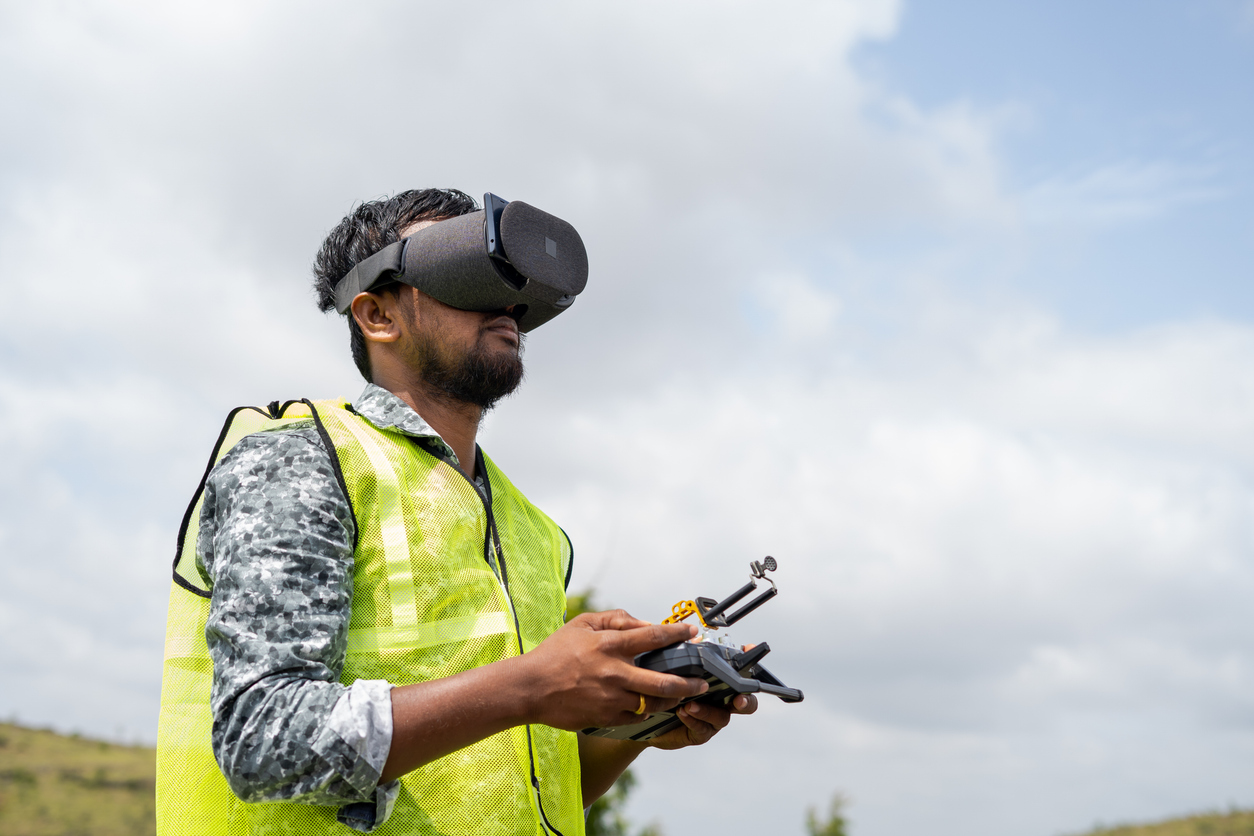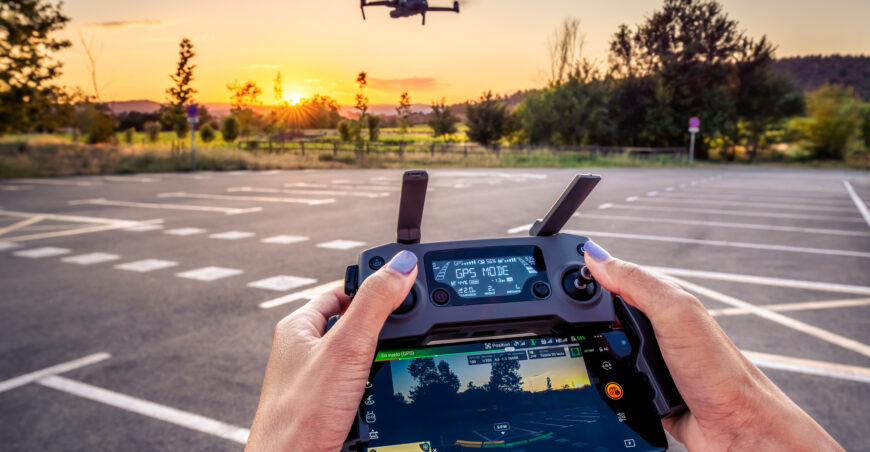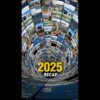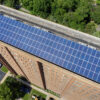The role of drones in commercial real estate is poised to expand, offering new opportunities for innovation and growth. The commercial real estate industry is undergoing a significant transformation, driven by advancements in technology. Among these innovations, drones have emerged as a game-changer, offering multiple applications that enhance efficiency, provide detailed insights, and improve decision-making processes. This article will talk about the various roles drones play in commercial real estate, highlighting their impact on property marketing, site inspections, construction management, and beyond.
Property Inspections and Surveys

One of the most prominent applications of drones in commercial real estate is property inspections. Traditionally, inspecting large commercial properties, such as office buildings, warehouses, and industrial sites, required considerable time, effort, and resources. However, drones equipped with high-resolution cameras can swiftly capture detailed aerial views of these properties, providing comprehensive visual data.
Drones enable real estate professionals to assess the condition of roofs, facades, and other hard-to-reach areas without the need for scaffolding or ladders. This not only enhances safety but also saves time and reduces costs. By identifying potential issues early, such as structural damage or maintenance needs, drones help property owners and managers make informed decisions, ultimately prolonging the lifespan of their assets.
Enhanced Property Marketing
Marketing commercial properties effectively is crucial in attracting potential buyers and tenants. Drones have been a game-changer when it comes to property marketing by offering stunning aerial photography and videography that showcase properties from unique perspectives. These captivating visuals provide a compelling way to highlight a property’s features, location, and surroundings.
Aerial footage captured by drones can be seamlessly integrated into virtual tours, enabling prospective clients to explore properties remotely. This immersive experience allows potential buyers and tenants to gain a comprehensive understanding of the property’s layout, amenities, and neighborhood. As a result, drones not only enhance marketing efforts but also expedite the decision-making process, reducing the time properties spend on the market.
Streamlined Construction Management
The construction phase of commercial real estate projects involves numerous complexities and challenges. Drones have proven to be invaluable tools for monitoring construction progress, ensuring adherence to timelines and maintaining quality control. By capturing regular aerial images and videos, drones provide real-time insights into the development process.
Construction managers can use drone-generated data to track the progress of various project stages, identify potential delays, and address issues promptly. This proactive approach minimizes the risk of costly overruns and ensures that projects stay on schedule. Also, drones facilitate accurate measurements and volumetric calculations, aiding in site planning and resource allocation.
Data Collection and Analysis
Data accuracy is paramount in commercial real estate, and drones excel in collecting precise and actionable data. Equipped with advanced sensors and imaging technology, drones can capture high-resolution images, 3D models, and topographic maps of properties. This data is invaluable for site surveys, land assessments, and feasibility studies.
For instance, drones equipped with LiDAR (Light Detection and Ranging) sensors can create detailed elevation maps, enabling real estate professionals to analyze terrain features and drainage patterns. This information is crucial for site selection, design optimization, and environmental impact assessments. By providing accurate and up-to-date data, drones empower stakeholders to make informed decisions that align with regulatory requirements and sustainability goals.
Cost Efficiency and Sustainability
Incorporating drones in commercial real estate operations offers significant cost savings and promotes sustainability. Traditional methods of property inspection, data collection, and marketing often involve substantial expenses related to labor, equipment, and logistics. Drones streamline these processes, reducing the need for manual labor and expensive equipment rentals.
Furthermore, drones contribute to sustainability efforts by minimizing the environmental impact of real estate activities. For example, drones can perform inspections without the need for heavy machinery or vehicles, reducing carbon emissions and disturbance to the surrounding environment. This aligns with the growing emphasis on eco-friendly practices in the real estate industry.
Prospects and Challenges
As drone technology continues to advance, its role in commercial real estate is expected to expand further. Innovations such as autonomous drones, artificial intelligence, and machine learning will enhance the capabilities of drones, enabling them to perform tasks with even greater precision and efficiency. For instance, autonomous drones can conduct routine inspections and data collection without human intervention, further optimizing operations.
However, the widespread adoption of drones also presents challenges, particularly related to regulatory compliance and privacy concerns. Navigating airspace regulations and obtaining necessary permits can be complex, especially in urban areas. The use of drones for data collection raises privacy issues, necessitating strict adherence to data protection laws and ethical considerations. Additionally, investing in training and developing expertise in drone operations will ensure that CRE professionals can effectively leverage this technology.
In conclusion, drones have emerged as transformative tools in the commercial real estate industry, revolutionizing property inspections, marketing, construction monitoring, and data collection. Their ability to capture high-resolution visuals, provide real-time insights, and enhance operational efficiency makes them indispensable assets for real estate professionals. As technology continues to evolve, the role of drones in commercial real estate is poised to expand, offering new opportunities for innovation and growth. Embracing this technology will enable industry stakeholders to stay competitive, deliver exceptional value, and navigate the ever-changing landscape of commercial real estate with confidence.
If you are interested in learning more about the commercial real estate market, feel free to reach out to us at ICRE Investment Team anytime. We’d be happy to help supply you with information on any relevant properties or markets, alongside any connections in lending, investing, brokerage service or consulting that you might need!
















